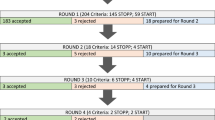Abstract
At least four different frameworks — psychiatric, cognitive, functional and decision-making — are used in the evaluation of competence, all of which remain more or less unrelated in the literature. In the first section of this paper we consider various meanings of “competence,” in order to arrive at a definition of the term relevant to the medical and legal setting. Patient or client “competence,” we conclude, refers to the practical abilities that individuals employ in pursuing their own autonomous goals in life. We then show how a systematic categorization of these practical abilities — which we call a taxonomy of practical judgment — allows us to show when the traditional frameworks for the evaluation of competence may or may not be useful in the evaluation of a particular competence.
In the final section we explore some of the normative considerations underlying the taxonomy. For instance, competence is not only related to intrinsic abilities but to resources available in the community. Here we touch on questions related to the fair distribution of community resources.
Similar content being viewed by others
Author information
Authors and Affiliations
Rights and permissions
About this article
Cite this article
Pepper-Smith, R., Harvey, W.R.C. & Silberfeld, M. Competency and practical judgment. Theor Med Bioeth 17, 135–150 (1996). https://doi.org/10.1007/BF00539736
Issue Date:
DOI: https://doi.org/10.1007/BF00539736




